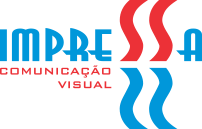Mental Math in Casino Games: A Closer Look at the Strategy Behind "Mental 2"
The concept of mental math, particularly Mental 2, has been making waves in the world of casino games. It’s a strategy that has gained popularity among players seeking to gain an edge over their opponents. But what exactly is Mental 2? How does it work, and more importantly, can it really improve one’s chances of winning?
What is Mental 2?
Mental 2, also known as "Mental" or "Math in the head", is https://mental2-game.com/ a mental calculation technique used by some casino players to quickly calculate sums, percentages, and other mathematical operations without actually performing them on paper. Developed from techniques used by mathematicians and chess players, Mental 2 involves training one’s brain to perform rapid-fire calculations using advanced math concepts.
The core idea behind Mental 2 is based on the concept of "mental blocks", which are essentially short-term memories that allow individuals to store mathematical data temporarily. By leveraging these mental blocks, practitioners can rapidly calculate complex operations without physically writing them down or even thinking through each step.
How Does it Work?
The process of learning Mental 2 involves a combination of math concepts and cognitive training exercises. At its core, Mental 2 relies on three key components: "base" numbers, "blocks", and "computation".
- Base : In Mental 2, the base is the starting number or operation that an individual focuses on during mental calculations. It’s like a "home base" for their math operations.
- Blocks : As mentioned earlier, blocks are short-term memories used to store data temporarily during mental calculations. Blocks can be created through repetition of a particular math concept or by storing specific numbers in working memory.
- Computation : This is the actual process of performing mathematical operations using Mental 2. Practitioners combine their base and blocks with advanced math concepts like multiplication, division, addition, and subtraction to achieve their desired outcome.
The combination of these components allows individuals to rapidly calculate sums, percentages, and other complex mathematical operations without actually thinking through each step.
Applications in Casino Games
Mental 2 has several practical applications in casino games. Some of the most notable include:
- Blackjack : Players can use Mental 2 to quickly calculate their hand’s value, adjust bets based on probability, and optimize decision-making.
- Poker : By leveraging Mental 2, poker players can perform rapid-fire calculations for odds, outs, and pot size, giving them an edge over opponents who rely solely on intuition.
- Baccarat : The ability to quickly calculate percentages, odds, and payout ratios helps players make informed decisions about bets.
While Mental 2 offers numerous benefits in casino games, it’s essential to note that no strategy can guarantee a win. However, by combining mental math with strategic decision-making, players can significantly improve their chances of success.
Challenges and Limitations
Despite its potential, there are several challenges associated with learning and applying Mental 2:
- Time Commitment : Developing proficiency in Mental 2 requires significant time investment. Players must dedicate themselves to intense practice sessions.
- Cognitive Strain : Performing complex mental calculations can be mentally exhausting, particularly for those without prior experience or aptitude for math.
- Application Limitations : While Mental 2 excels in some areas, it may not offer the same level of effectiveness in others. Players must carefully evaluate which games and strategies are best suited to this approach.
As with any skill or strategy, there’s always room for improvement. By acknowledging these challenges and limitations, players can better prepare themselves for the demands of Mental 2.
